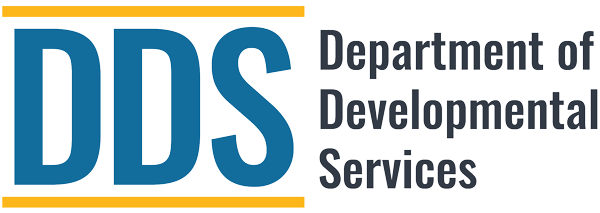Beginning in Fiscal Year 2001-02, the California Legislature provided funding to the Department of Developmental Services (DDS) and regional centers to create a system for managing risks. The goal was to improve the health, safety, and well-being of individuals served by regional centers, and to introduce strategies to prevent and reduce risks.
DDS’ risk management system takes into account California’s diverse population while maintaining the core functions of the state’s service system. This system involves several organizations, but the three main groups responsible for risk management and mitigation in the developmental disabilities services system are DDS, the 21 regional centers, and an independent contractor hired to manage risk.
More Information about the DDS Risk Management System.
- SIR’s are submitted to DDS by regional centers according to Title 17, Section 54327 of the California Code of Regulations.
- The focus of the dashboard is for individuals “living out of home” because most Title 17 SIR reportable events categories only apply when an individual is under vendored care.
- The interactive dashboard allows the user to explore statewide trends by Residence Type, Age Group or Race.
- The dashboard will be updated on a quarterly basis.
- Suspected abuse
- Suspected neglect
- Injury requiring medical attention
- Unplanned hospitalization
- Any occurrence of Missing persons, if they occur when an individual is receiving regional center services funded by a regional center (under vendored care)
- Any mortality and/or Individual being the victim of crime (whether or not it occurred while they were under vendored care)
Reports include the annual Report to the Legislature, the semi-annual Mortality Special Incidents Report, the semi-annual Non-Mortality Special Incidents Report and the semi-annual Mover Report.
Risk Management Year in Review – Annual Report
This report is required by Section 55 of Assembly Bill 430, Chapter 171, Statutes of 2001, to provide an annual report regarding special incidents involving individuals with developmental disabilities served by regional centers.
- Fiscal Year 2023/2024
- Fiscal Year 2022/2023
- Fiscal Year 2021/2022
- Fiscal Year 2020/2021
- Fiscal Year 2019/2020
- Fiscal Year 2018/2019
- Fiscal Year 2017/2018
Semi-Annual Risk Management Special Incident Reports
Mortality and Non-Mortality Special Incidents Combined
This semi-annual report summarizes mortality and non-mortality special incident rates for individuals with developmental disabilities served by regional centers.
- Calendar Year 2023: January – June 2023
- Calendar Year 2022: January – June 2022 | July – December 2022
- Calendar Year 2021: January – June 2021 | July – December 2021
- Calendar Year 2020: January – June 2020 | July – December 2020
- Calendar Year 2019: January – June 2019 | July – December 2019
- Calendar Year 2018: January – June 2018 | July – December 2018
- Calendar Year 2017: January – June 2017 | July – December 2017
Semi-Annual Mover Reports
These semi-annual reports summarize indicators regarding individuals with developmental disabilities who transitioned from developmental centers to the community.
- Developmental Center Mover Report: January – June 2019 | July – December 2019
- Developmental Center Mover Report: January – June 2018 | July – December 2018
- Developmental Center Mover Report: January – June 2017 | July – December 2017
These materials include informational brochures on the flu vaccine and the pneumonia vaccine, and a poster, in English, Chinese, Spanish, Tagalog, and Vietnamese.
- Flu Brochure:
English |
Chinese |
Spanish |
Tagalog |
Vietnamese - Pneumonia Brochure:
English |
Chinese |
Spanish |
Tagalog |
Vietnamese - Flu Poster:
English |
Chinese |
Spanish |
Tagalog |
Vietnamese
Resources
Tools developed to help regional centers, service providers, and families improve health and safety among the individuals they support.
Fall Prevention
The fall prevention materials provide some easy and practical things that can be done to prevent falls.
- Clinical Professionals — Medical Risk Factors and Prevention of Falls and Fractures
- Preventing Falls and Fractures — Information for Supporters and Providers
- Risk Assessment Inventory: Falls
- Preventing Falls
Chronic Conditions & Checklists
The Chronic Condition Checklists are tools to help regional center staff, service providers and families monitor common chronic conditions. The materials support steps for appropriate care and to prevent potential special incidents (SIRs) from occurring.
- Checklist: Aspiration/Aspiration Pneumonia
- Checklist: Impaction & Severe Constipation
- Checklist: Insulin Dependent Diabetes
- Checklist: Epilepsy
- Checklist: Gastrostomy Tube (G-tube) Feeding
- Checklist: Osteoporosis
- Checklist: Staphylococcus “Staph” Infection
- Checklist: Weight Management
Medication Errors
The Medication Error Report Diagnostic Tool and Medication Administration Checklist can be used by regional centers and service providers to lower the rate of medication error special incidents (SIRs) by improving the processes for managing and administering medications.
Risk Management Training Manual
The Risk Management Training manual for regional centers to use in their staff development and quality assurance efforts. Regional centers can utilize the training modules for their own staff or as training opportunities for their vendors.
Last modified: June 18, 2025
